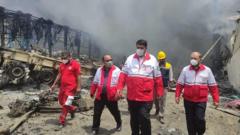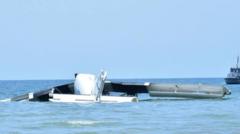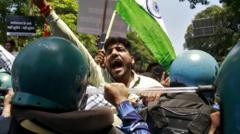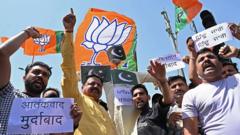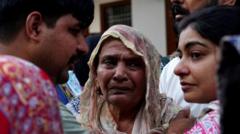Following the Munich car-ramming incident, which left 36 injured, prosecutors suggest the Afghan suspect may have acted with religious motivation, a scenario alarming in light of upcoming German elections and previous immigrant-related attacks.
Munich Car Attack: Prosecutors Identify Possible Jihadist Motive

Munich Car Attack: Prosecutors Identify Possible Jihadist Motive
An Afghan man has admitted to driving into a crowd in Munich, injuring 36, with prosecutors citing potential Islamist motivations behind the act.
An Afghan man, identified as Farhad N, is facing charges after he allegedly drove his Mini Cooper into a crowd in Munich, resulting in injuries to 36 individuals, including two critically injured, one being a two-year-old girl. During his apprehension, prosecutors noted that the suspect proclaimed "Allahu Akbar" (God is greatest), leading them to consider a potential Islamist motivation behind the attack. Munich public prosecutor Gabriele Tilmann emphasized this possible motive in her statements to the press.
The attack occurred amidst a trade union protest near Munich central station just ten days prior to Germany's federal elections, a period marked by heightened sensitivities regarding immigration and security. Authorities reported that 32 of the injured are male, and four are female, indicating the broad impact of this violent act.
President Frank-Walter Steinmeier condemned the incident during his visit to the site of the attack, expressing profound shock at the brutality involved. Police chief Guido Limmer confirmed that Farhad N, 24, had admitted to intentionally targeting the crowd. Despite initially unsubstantiated claims of a criminal past, October updates dispelled such rumors, revealing that Farhad N had no previous convictions and that he was living legally in Germany since arriving in 2016.
As the incident transpired on the eve of the Munich Security Conference, US Vice-President JD Vance also paid tribute to the victims, further highlighting the international consequences of local acts of violence. The dialogue surrounding the attack is complex, intersecting with the narratives of migration and national security that have dominated the political landscape in Germany leading up to the elections.



